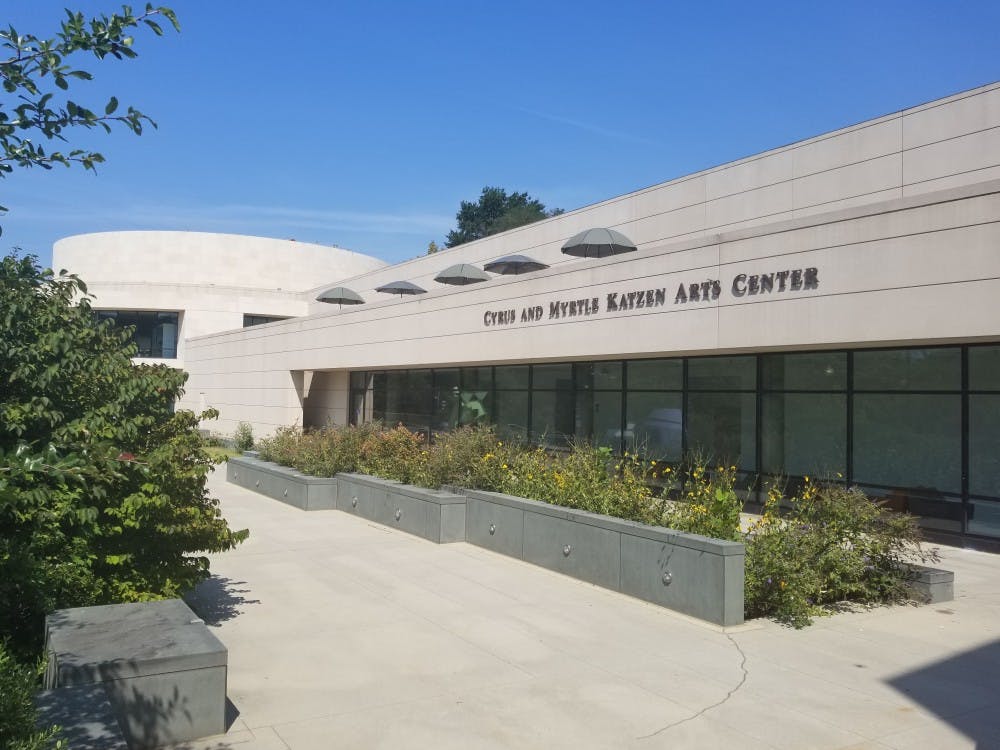Tracy Weitz, a professor of Sociology at American University, was appointed to the National Academies of Sciences, Engineering, and Medicine’s first-ever Committee on Reproductive Health, Equity, and Society this past summer.
A Nebraska native, Weitz grew up in a conservative area with parents who were strongly interested in women’s rights and reproductive health. Her father was a civil engineer and worked in counties where infrastructure was breaking down due to rapid population growth. The issues Weitz’s father dealt with at work made him interested in contraception, reproductive health and abortion. During the 1960s, Weitz’s mother also grew interested in a growing movement to legalize abortion.
“I sort of grew up in a household where these issues were important,” Weitz said. “I went to [the University of California] Berkeley to go to undergraduate and I thought I was gonna be a doctor, because I thought that’s what you did when you cared about health care.”
At Berkeley, Weitz volunteered at Planned Parenthood. Her time there coincided with growing resistance across the country from conservatives to the Supreme Court’s decision in Roe v. Wade, which legalized abortion. This drew Weitz’s interest to reproductive justice, prompting her to change her major to political science.
Her first job out of college was at an abortion clinic. Not long after, Weitz went back to school to get a master’s degree in healthcare administration from the University of California, San Francisco. At UCSF, she was a clinical manager, which provided Weitz with eye-opening realities about her career.
“No matter what I was doing, I couldn’t improve the health care system and I couldn’t deal with the fights,” Weitz stated. As a clinical manager, she was no longer working with abortion, which made her frustrated with her career path. Weitz then earned her PhD in sociology, where she met a mentor who helped her find her direction again.
“I had a mentor who said to me, ‘What do you love?,’ and I said, ‘Well, I really love abortion,’” Weitz said. “And then she said, “‘Well, then you should study abortion and leave the easy stuff to someone else,’ And so it’s been my research topic ever since.”
On the committee, Weitz acts as an expert to guide scientists on their assessments of health issues, studies and evidence, which later guide Congress when creating policies. The National Academies were created outside the authority of government, and are often referred to as the “Supreme Court of medicine,” Weitz said. Despite the committee’s recommendations, the National Academies are not always successful in influencing public policies.
“Science doesn’t play the same role in policy that it used to,” Weitz said. “It’s a sad moment that we are in. We all hope that it will bounce back.”
Weitz’s experiences working in abortion clinics have influenced her goals in addressing reproductive health. Weitz emphasized that protecting access to abortion also protects equality in other areas of reproductive health, such as contraception access. Weitz added that abortion access is heavily influenced by socioeconomic status, making it more difficult for women in disadvantaged areas to obtain reproductive care.
“I could live in Texas, I’m gonna be able to get outta Texas and get an abortion if I need an abortion, right,” she said. “Because I have money and I have resources and I have structural power and all of that. If you live in the delta of Mississippi and you have no money and you have no resources, that abortion criminalization is gonna impact you. So who gets harmed are the same people who always get harmed in our country.”
Weitz said that getting enough voting power is essential to protecting abortion rights, and, ultimately, equity in reproductive health.
“Then hopefully we have a government that listens to science,” she said “We have a government that cares about equity. We have a government that wants to redress past harms.”
Weitz said she has gained her expertise through clinical trials, ethnographies and policy analysis. She ran a large five-year clinical trial that examined the safety abortions of provided by nurse practitioners, certified midwives and physician assistants to determine if the procedure is being done safely. Weitz has also done qualitative interviews to understand patients’ experiences with abortion, informing her understanding of what the clinical encounter is like and what services patients need.
Lately, Weitz has been particularly interested in the economic effects of abortion restrictions, such as what would happen if the U.S. changed reimbursement rates on insurance for abortions. Weitz said that considering factors like money and geography, which represent the two biggest barriers to abortion access, is necessary for crafting solutions.
“The call to action is to not imagine that any of these things are not related, right,” she said. “And to fight at the core, to fight the sort of power structure that seeks to remove all of these rights and all of the safety from people who don’t look like them, support the same structures as them, you know, have the same kind of privilege [as them].”
Looking to the future, Weitz wants to continue making contributions to reproductive health care and furthering the conversations on reproductive rights. She hopes to pass on her lessons to the next generation of students who will continue her work.
This article was edited by Maeve Fishel, Zoe Bell, Jordan Young and Abigail Pritchard. Copy editing done by Isabelle Kravis and Luna Jinks.





